Related Research Articles

Lincoln is the capital city of the U.S. state of Nebraska and the county seat of Lancaster County. The city covers 100.4 square miles (260.035 km2) with a population of 292,657 in 2021. It is the state's 2nd most populous city and the 73rd-largest in the United States. Lincoln is the economic and cultural anchor of a substantially larger metropolitan area in southeastern Nebraska, the Lincoln Metropolitan and Lincoln-Beatrice Combined Statistical Areas. The statistical area is home to 361,921 people, making it the 104th-largest combined statistical area in the United States.
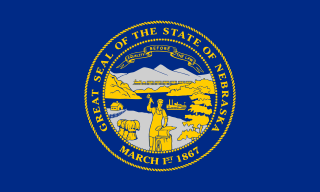
Nebraska is a state in the Midwestern region of the United States. It is bordered by South Dakota to the north; Iowa to the east and Missouri to the southeast, both across the Missouri River; Kansas to the south; Colorado to the southwest; and Wyoming to the west.

Hastings is a city and the county seat of Adams County, Nebraska, United States. The population was 25,152 at the 2020 census, making it the 8th most populous city in Nebraska.

W. W. Norton & Company is an American publishing company based in New York City. Established in 1923, it has been owned wholly by its employees since the early 1960s. The company is known for its Norton Anthologies and its texts in the Norton Critical Editions series, both of which are frequently assigned in university literature courses.

Eric Foner is an American historian. He writes extensively on American political history, the history of freedom, the early history of the Republican Party, African American biography, the American Civil War, Reconstruction, and historiography, and has been a member of the faculty at the Columbia University Department of History since 1982. He is the author of several popular textbooks. According to the Open Syllabus Project, Foner is the most frequently cited author on college syllabi for history courses.

The Abraham Lincoln Presidential Library and Museum documents the life of the 16th U.S. president, Abraham Lincoln, and the course of the American Civil War. Combining traditional scholarship with 21st-century showmanship techniques, the museum ranks as one of the most visited presidential libraries. Its library, in addition to housing an extensive collection on Lincoln, also houses the collection of the Illinois State Historical Library, founded by the state in 1889. The library and museum is located in the state capital of Springfield, Illinois, and is overseen as an agency of state government. It is not affiliated with the U.S. National Archives and its system of libraries.
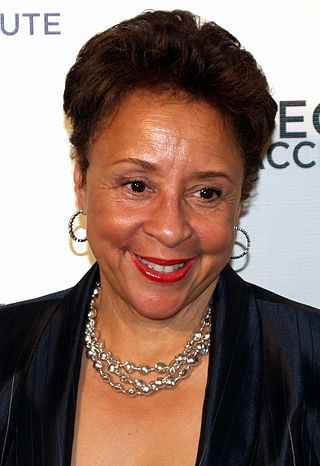
Sheila Crump Johnson is an American businesswoman, co-founder of BET, CEO of Salamander Hotels and Resorts, and the first billionaire African-American woman.

Hazel Abel was an American educator and politician in the U.S. state of Nebraska, who served as a member of the United States Senate for fifty-four days in 1954. She was the first woman elected to the Senate from Nebraska, and she remains the shortest-serving senator from Nebraska.

Mari Susette Sandoz was a Nebraska novelist, biographer, lecturer, and teacher. She became one of the West's foremost writers, and wrote extensively about pioneer life and the Plains Indians.

Jean-Sylvain Van de Weyer was a Belgian politician who served as the Belgian Minister at the Court of St. James's, effectively the ambassador to the United Kingdom, and briefly, as the prime minister of Belgium, all under King Leopold I.
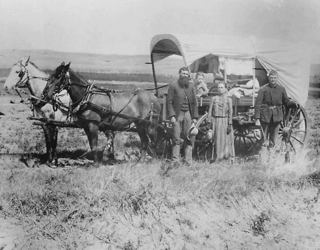
The history of the U.S. state of Nebraska dates back to its formation as a territory by the Kansas–Nebraska Act, passed by the United States Congress on May 30, 1854. The Nebraska Territory was settled extensively under the Homestead Act of 1862 during the 1860s, and in 1867 was admitted to the Union as the 37th U.S. state. The Plains Indians are the descendants of a long line of succeeding cultures of indigenous peoples in Nebraska who occupied the area for thousands of years before European arrival and continue to do so today.

Fenner Ferguson was an American attorney and politician from the Nebraska Territory. He was most notable for his service as member of the Michigan House of Representatives in 1849, chief justice of Nebraska Territory from 1854 to 1857, and Delegate to the United States House of Representatives from Nebraska territory (1857-1859).

The Abraham Lincoln Bicentennial Commission (ALBC) was the congressionally created, 14-member federal commission focused on planning and commemorating the 200th birthday of the United States' 16th president on February 12, 2009. The commission served for ten years, from 2000 to 2010. Its official successor organization, announced in 2011 with an expanded board and broadened mission, is the Abraham Lincoln Bicentennial Foundation.
The Nebraska State League (NSL) was an American professional minor league baseball league with five incarnations between 1892 and 1959. The Nebraska State League formed five times: in 1892, from 1910 to 1915, from 1922 to 1923, from 1928 to 1938 and from 1956 to 1959. League teams were based in Iowa, Kansas, Nebraska and South Dakota. The 1892 league was a Class B level league, and the league was a Class D level league in all subsequent seasons.
James C. Mitchell (1810-1860) was an early settler of Bellevue, Iowa and went on to the found the town of Florence in the Nebraska Territory in 1854.
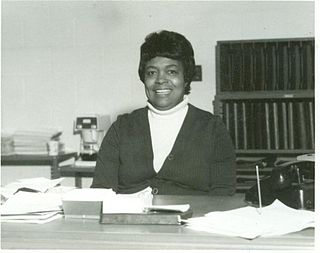
Bertha Calloway was an African-American community activist and historian in North Omaha, Nebraska. The founder of the Negro History Society and the Great Plains Black History Museum, Calloway won awards from several organizations for her activism in the community and Nebraska. "I Love Black History" was the former website for the Bertha W. Calloway Center for the Research and Study of African and African-American History, Art, and Culture and the Great Plains Black History Museum before it.
Mildred Adams was the name used by Mildred Adams Kenyon, an American journalist, writer, translator, and critic of Spanish literature.
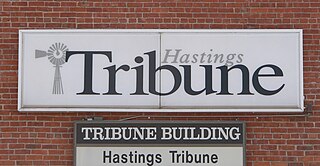
The Hastings Tribune is a newspaper published in Hastings, Nebraska. The newspaper is put out six days a week, excluding Sundays. It serves ten counties in south central Nebraska and north central Kansas. In 2011, its circulation was 9,356. Today, it's 5,250.
The States and the Nation series is a book series published in celebration of the United States Bicentennial by W. W. Norton & Company regarding the states of the United States of America. The first volume was published in 1975 and volumes continued to appear until 1984.
References
- 1 2 "Dorothy Weyer Creigh". nebraskaauthors.org. Lincoln City Libraries . Retrieved January 16, 2023.
- ↑ Creigh, Dorothy Weyer (1977). Nebraska: A Bicentennial History. New York City: W.W. Norton.